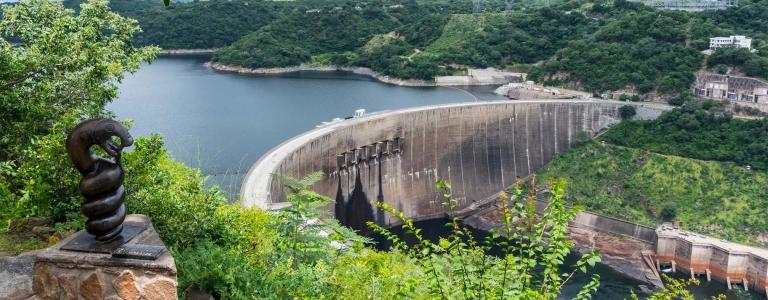COMESA and IISD join forces to support sustainable development in Eastern and Southern Africa
August 23, 2024 — The Common Market for Eastern and Southern Africa (COMESA) and the International Institute for Sustainable Development are strengthening their cooperation to advance sustainable development across the region.
COMESA and IISD have developed a fruitful collaboration in the last decade, delivering tangible, sustainable development progress across the region.
A new agreement signed this month will ensure the partnership continues for a second decade and extend the support to COMESA member states, enabling them to address their most urgent issues across foreign investment, agriculture, food systems, trade, tax, and standards.
“This represents a critical step forward in our long-running partnership and underlines our shared commitment to fostering sustainable development in Eastern and Southern Africa,” says Nathalie Bernasconi-Osterwalder, IISD’s Vice President for Global Strategies and Managing Director for Europe.
“This partnership is poised to contribute significantly to the efficient and effective development and implementation of our programmes,” says COMESA Secretary General Chileshe Mpundu Kapwepwe, “which will, in turn, enhance regional trade and investment in agri-food systems. By working together, we can achieve our shared vision of a more sustainable future for the region.”
COMESA and IISD will join forces to deliver new capacity-building workshops, research, analysis, and technical assistance to promote robust, long-term solutions to COMESA member states’ most pressing policy problems and the effective implementation of COMESA programs.
Contacts
COMESA: Banele Jele, Investment Promotion Expert, email: BJele@comesa.int; Daniel Banda, Communication Officer, Email: dbanda@comesa.int
IISD: Suzy H. Nikièma, Director of Investment, email: snikiema@iisd.org; Isaak Bowers, Communications Officer for Investment, email: ibowers@iisd.org
About COMESA
COMESA is a regional economic community established in 1994. It brings together 21 African Member States with a population of over 640 million people into a cooperative framework for sustainable economic growth and prosperity through regional integration. Website: www.comesa.int
About IISD
The International Institute for Sustainable Development (IISD) is an award-winning independent think tank working to accelerate solutions for a stable climate, sustainable resource management, and fair economies. Our work inspires better decisions and sparks meaningful action to help people and the planet thrive. We shine a light on what can be achieved when governments, businesses, non-profits, and communities come together. IISD’s staff of more than 250 experts come from across the globe and from many disciplines. With offices in Winnipeg, Geneva, Ottawa, and Toronto, our work affects lives in nearly 100 countries.
You might also be interested in
December 2024 | Carbon Minefields Oil and Gas Exploration Monitor
In November 2024, 23 oil and gas exploration licences were awarded across five countries, with Russia granting the licences that account for the largest portion of embodied emissions.
Sustainable Asset Valuation (SAVi) of a Small-Scale Tree Planting Initiative in Côte d'Ivoire
This report analyzes the social, economic, and environmental outcomes of a small-scale tree planting initiative at schools in Côte d'Ivoire.
The Cost of Fossil Fuel Reliance
Government support for fossil fuels reached at least USD 1.5 trillion in 2023, new data shows.
Increased Support Needed to Achieve India's Clean Energy Goals
India is on track to achieve many of its 2030 clean energy goals but needs to step up government support measures to accelerate the deployment of offshore wind, electric vehicles, and green hydrogen, according to a new report.
